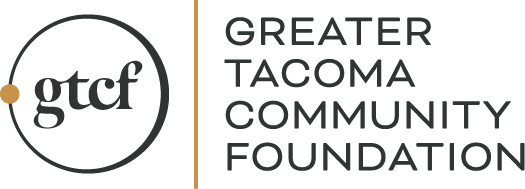
Community
16
Flexible Funding Makes the Magic Happen Sooner
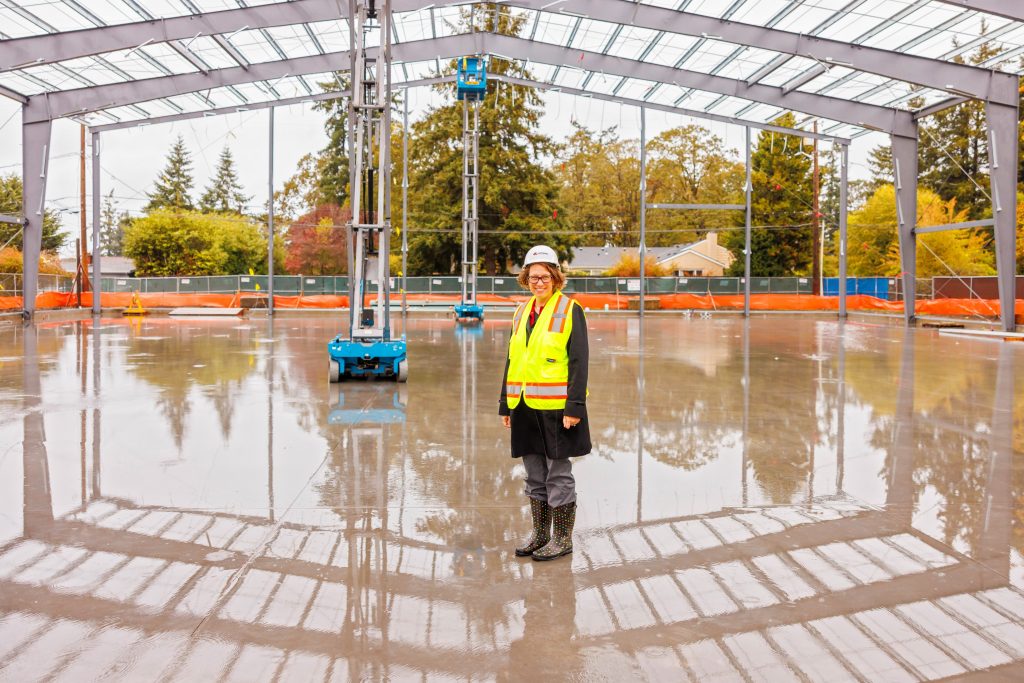
Michelle Douglas, Emergency Food Network CEO, in November 2023
At a time when more people than ever are accessing food banks, a larger warehouse will expand Emergency Food Network’s (EFN) ability to distribute food to Pierce County people in need. However, financing the capital project meant overcoming barriers nonprofits face to flexible funding. A pilot bridge loan program from Elevate Health and Greater Tacoma Community Foundation aims to support the timely completion of projects, like EFN’s warehouse, that make a major impact in Pierce County.
“The warehouse is where the magic happens.” CEO Michelle Douglas stood in the rain on the concrete slab where the new warehouse is being built. It will grow EFN’s storage capacity by 40%. “This work of feeding people requires warehousing. This is our whole mission.”
If we were to bring in donated bananas or pineapple, we might bring in 24 pallets at a time.
Emergency Food Network is the backbone of the emergency food distribution system for Pierce County. With 75 food pantry partners staggered across the county, EFN also serves hot meal sites, overnight sites, and distributes food for all the federal and state food programs.
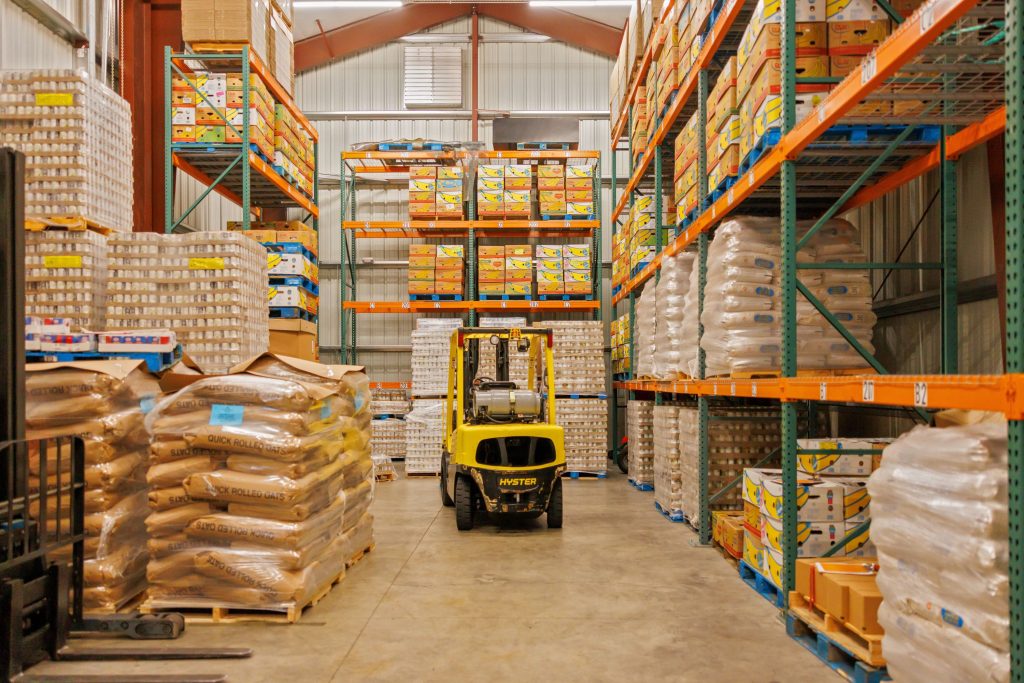
To meet the demand at all those sites, EFN relies not only food donations from individuals, but also large-scale donations from companies like Pepsi-Cola, for bottled water, Quaker Oats, Costco, and regional produce distributors. It totals about 15 million pounds of donated food annually. EFN also buys about $1.7 million worth of food annually to supplement donations.
More people are accessing the food pantry system than have ever accessed it in the entire history of the United States.
Michelle explained the importance of having enough storage space to receive, repackage, and store donations to meet Pierce County’s food support needs, “What EFN does is take in food in volume. When a big company donates, they’re looking for an organization that can receive it by the semi-truck, not by the case. If we were to bring in donated bananas or pineapple, we might bring in 24 pallets at a time.”
In a November 2023 visit, Michelle gave a tour of how EFN’s storage space made it difficult to receive the donations needed to meet Pierce County’s growing hunger needs. The current warehouses provide just 20,000 square feet. Volunteer teams are limited by space to both store and repackage food.
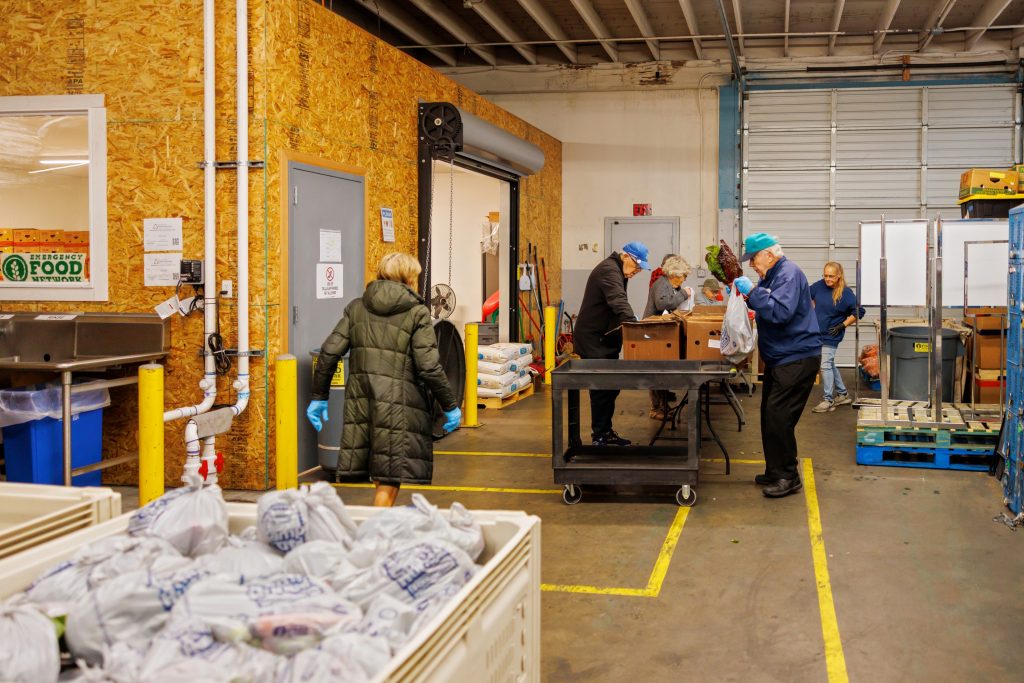
EFN leases additional storage from for-profit food warehouses and even makes use of refrigerated semi-trailers for their “rolling warehouse”, but they still see need that exceeds space. “In 2022 we had 2 million visits to all the food banks in the network. We saw a 30% increase every month in 2023 over 2022 numbers. We’ve never seen this level of need across the country. More people are accessing the food pantry system than have ever accessed it in the entire history of the United States.”
Despite the growing need for donated food distribution, and EFN’s 40-year track record locally, EFN faced a barrier that delays many nonprofit capital projects: cash flow. Philanthropic dollars often come with restrictions that require nonprofits to pay the upfront costs for a project.
Michelle pointed to the barrier that reimbursable federal, state, and local government grants presented for EFN’s warehouse project, “EFN has to pay the construction bills like anybody else – right away. We have to pay that with money upfront, then submit the receipt to get the money back. That could take 60-90 days to be reimbursed after you’ve paid it.
“In addition, some of our funds can’t be accessed till we’re within a certain number of days of completion. Some donors are paying their pledges over multiple years. We have the money committed, but it’s not in our hands. Then, construction costs went up 40% from when we first looked at the bids on this project.
When are we ever building this warehouse? We’re not. We’re not building it.
“Every single nonprofit that wants to do any kind of capital project or receive any kind of large-scale funding is gonna run into this problem.”
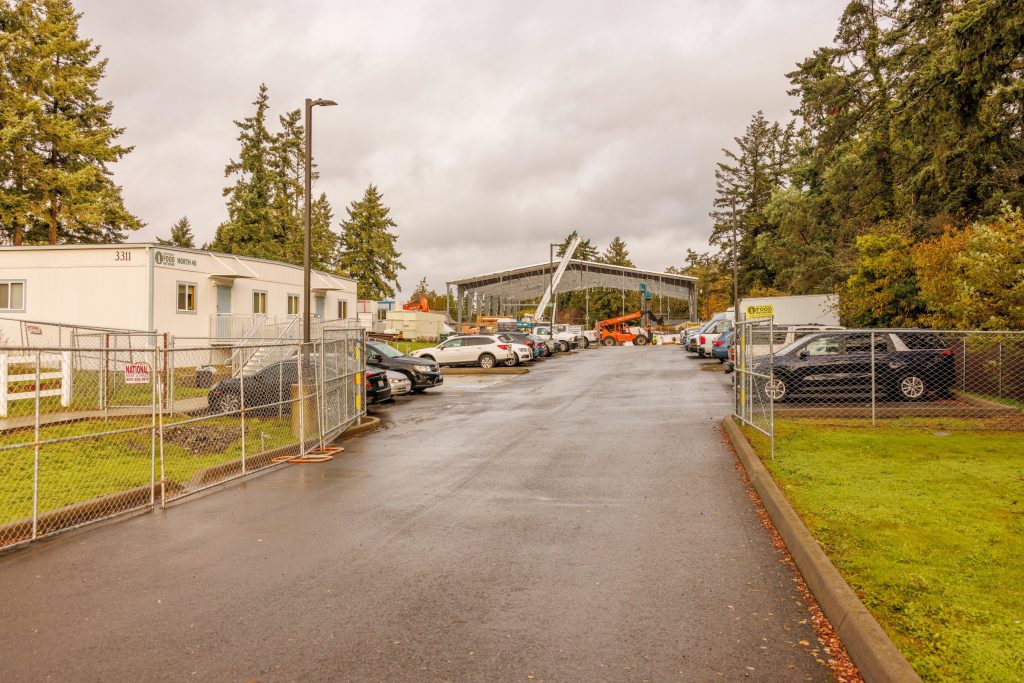
In the for-profit world, this is where businesses would get a loan. Michelle pointed out that nonprofits face barriers to getting loans as well, “In general, nonprofits don’t have the same kind of collateral that for-profit businesses have to put against loans. So, nonprofits pay really high interest rates. Then, it’s a little bit more challenging that there’s not exactly an owner of EFN. The board doesn’t own EFN. I don’t own EFN. We’re an entity that is held by the 501c3. Boards can be hesitant to take risk of a high interest loan. Also, nobody, no individual, no foundation, nobody is motivated to make a contribution to cover an interest payment.”
Without an extra source of cash, nonprofit projects can be drawn out or maybe never completed. “If I were to say, we’re going to wait till every pledge is in the door, our construction costs continue to rise. If we wait till 2026 to start, the project doesn’t cost us what it costs now. It will probably cost us double. So now, we don’t have enough money again and we have go back to raise more money. Then, our pledges are 3 more years out. When are we ever building this warehouse? We’re not. We’re not building it.”
I think that’s where this money is just really magical.
Michelle Douglas and EFN are part of a nonprofit capital finance pilot from Elevate Health, Greater Tacoma Community Foundation (GTCF), and a partnership of regional philanthropies. The pilot is offering low-interest, flexible-term loans for four current capital projects with reimbursable federal, state, and local government grants, including EFN’s new warehouse.
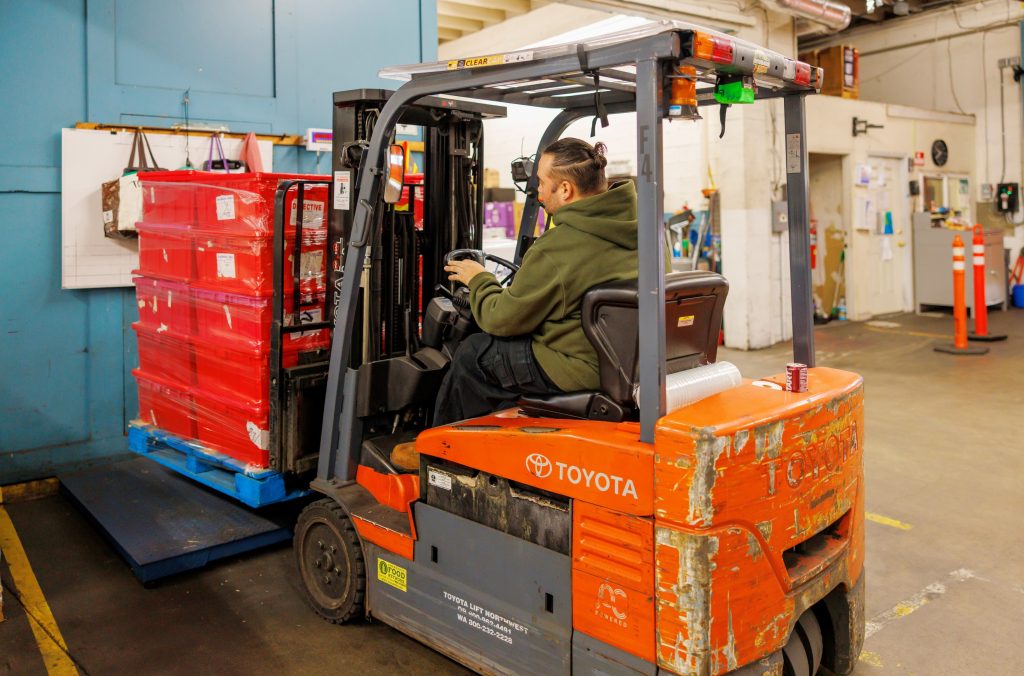
Pilot participants can access loan dollars to pay up-front costs and then repay the loan when reimbursements roll back in. If participants pay off the loans in full on-time, GTCF will issue a grant to cover the interest charged during the term. In addition, GTCF provided a $120,000 grant to Elevate Health to cover their administrative costs for due diligence, developing the loan program, and executing and monitoring loans.
This allows funders to play our best role – leveraging the opportunity moment to ensure that our community doesn’t lose federal funds.
Michelle reflected, “I think that’s where this money is just really magical. There’s a deep understanding of how nonprofits work. We all sign these contracts. We all have to pay for them upfront, and then we get reimbursed on them, on that entity’s schedule. And none of those things can have interest payments put against them. The interest payment has to come from some other source completely. You can’t charge an interest payment to a government agency grant. This pilot is an innovative way for philanthropy to offer a float to bridge the cash gap.”
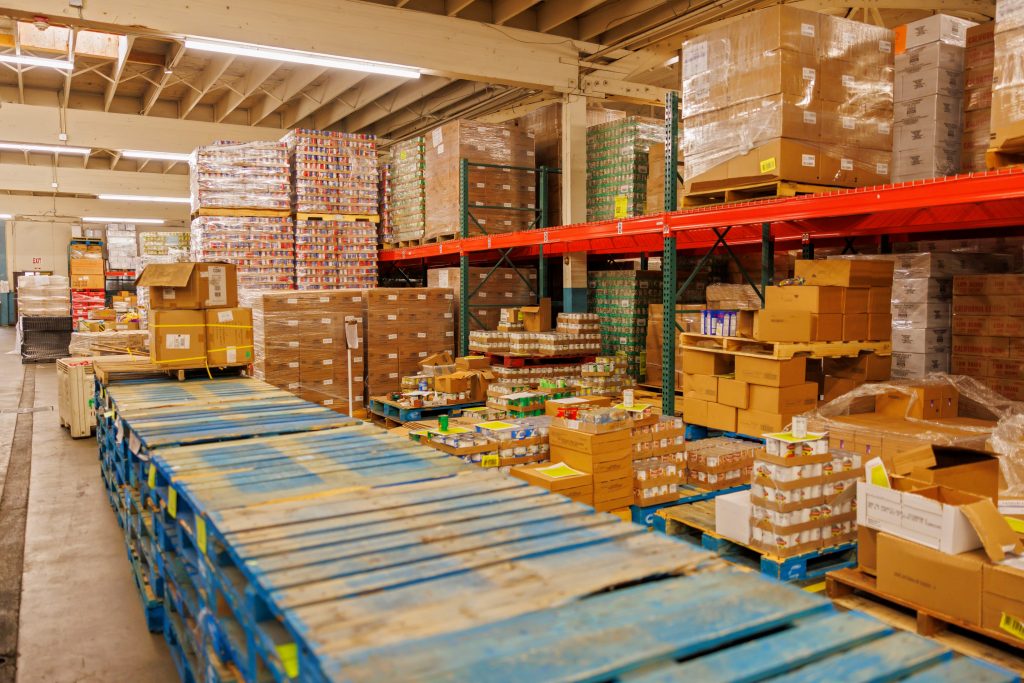
Elevate Health is funding and administering the loan through its investment initiative, called OnePierce. Gena Morgan, Elevate Health’s Executive Director, explained that support for the warehouse project through the bridge loan program provides her organization with opportunities to engage with communities across the region while helping to address a basic human need.
“We are pleased to invest in one of the most vital conditions any community has, which is adequate nutrition,” said Morgan. “This project allows essential community organizations to access flexible capital in a timely manner, thanks to the support of the philanthropic guaranty. Collaborating with EFN, GTCF and others through this OnePierce funding initiative aligns with Elevate Health’s commitment to identify and work in genuine partnership toward solutions that improve whole-person health, advance health equity and contribute to the well-being of Pierce County’s residents.”
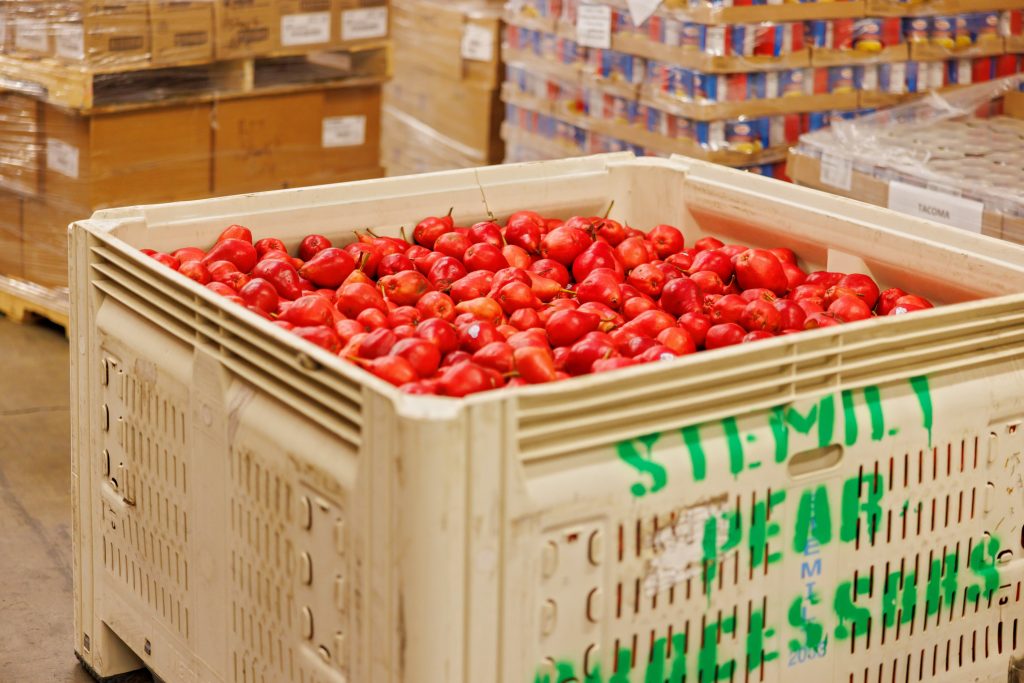
Seth Kirby is Chief Impact Officer of GTCF. He explained why philanthropies joined together to back the bridge loan pilot, “Together, loan co-guarantors are removing almost all of Elevate Health’s risk as the lender. In turn, this allows funders to play our best role – leveraging the opportunity moment to ensure that our community doesn’t lose federal funds.
“Those government funds might otherwise be used in other counties or could be reallocated to other projects elsewhere. In these terms, the real risk is not the $750,000 loan to EFN. The real risk is not leveraging more than $30 million in government funding being made available to the four capital projects in the pilot. The other real risk is not investing in the physical infrastructure our community will rely on for the next 50 years or longer.”
What this pilot could do is open up contracting possibilities for smaller agencies. It opens it up for big agencies, but it also opens it up for the unlikely receiver.
Philanthropies participating in the loan guaranty are able to activate foundation assets to drive impact above and beyond their usual grantmaking. They are also learning more about the real-world barriers nonprofit businesses navigate as they help build a thriving community. Seth added, “We know that lenders are often more risk adverse when it comes to nonprofit lending, but the services these organizations deliver creates the social safety net upon which we all rely.”
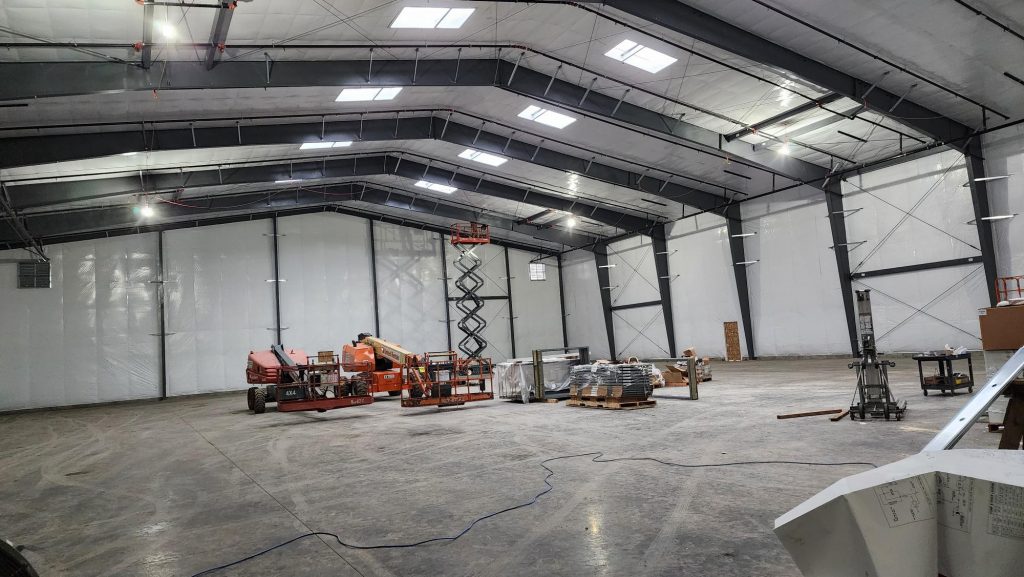
The new EFN warehouse in January 2024
Emergency Food Network is the first capital project of the pilot to draw on the bridge loan. Michelle Douglas offered a broader context for the pilot’s potential, “It’s often about who pays the interest. It’s plenty hard to get a business loan, even if you are for-profit. But the current system perpetuates the inequity where the people with money up front can get more money. The people that don’t already have money can’t get access to money. So, they can’t take the grants which would help them grow their impact. They can’t do the project. They can’t be innovative. All of those things become impossible because they don’t have access.
“This is DEI work. What this pilot could do is open up contracting possibilities for smaller agencies. It opens it up for big agencies, but it also opens it up for the unlikely receiver. Organizations that are by- and for- [historically underserved communities]. They haven’t had the same level of support. What this kind of bridge loan does in particular is level the playing field in a way that we just haven’t seen before.”
Emergency Food Network’s new warehouse is under construction with plans to be operational by summer 2024.
RESOURCES
Emergency Food Network – Building for the Future
Elevate Heath – OnePierce
Nonprofits need access for more flexible funding options so they can effectively continue meeting community needs.
GTCF’s Catalyst Fund supports this kind of philanthropic alignment and efforts to remove system barriers to a thriving Pierce County. Consider a gift to the Catalyst Fund to catalyze greater impact.
To learn more about leveraging your philanthropic giving to achieve the greatest impact contact GTCF’s Philanthropy Team
